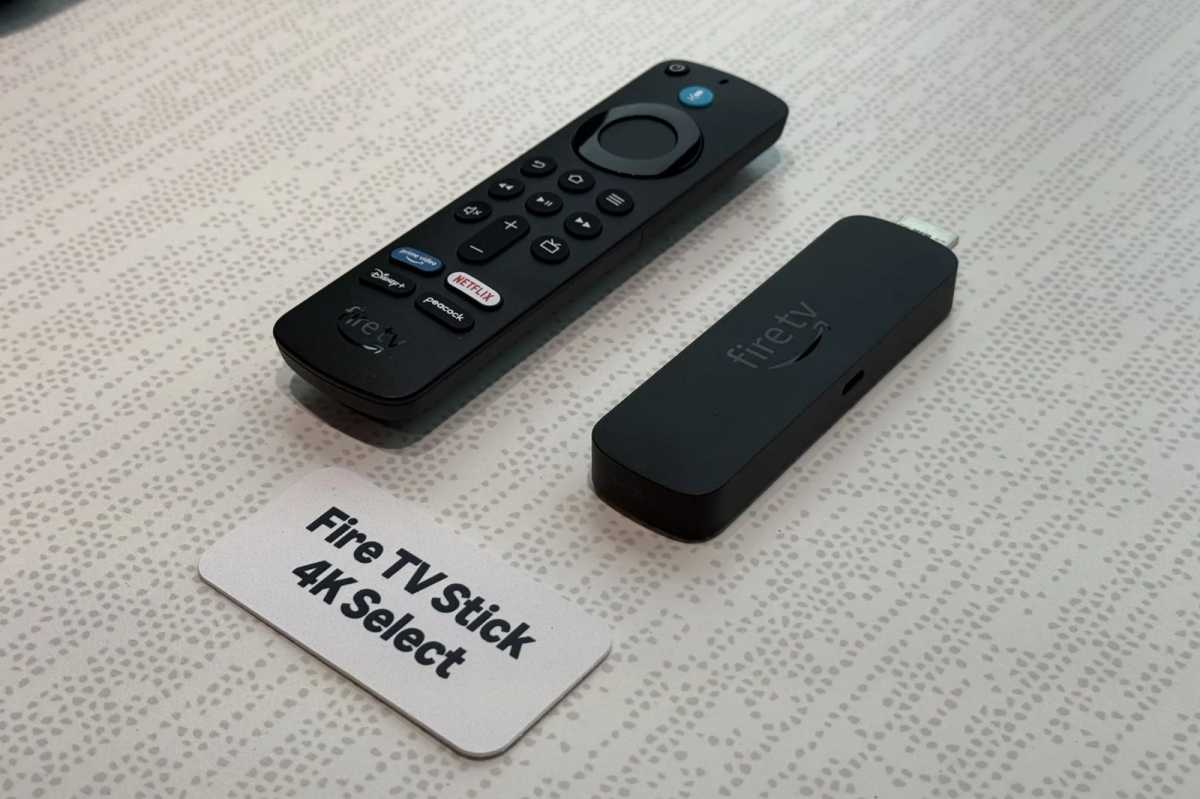The dirty secret with Amazon’s Fire TV Sticks is that they’re great for piracy, but maybe not for much longer.
Amazon confirmed this week that it will block Fire TV apps that provide access to pirated content, including apps that users sideload onto their devices from outside Amazon’s Appstore. Amazon is working with Alliance for Creativity and Entertainment (ACE), an anti-piracy coalition for the entertainment industry, to identify offending apps. The news was first reported by The Sun and confirmed by AFTVNews.
If you’re not using a Fire TV device for anything illicit, you might not see the problem. But the move is also part of a broader push by Amazon to lock down what people can do with their devices, for legitimate purposes or not. Those who bought a Fire TV with the expectation of an open platform may soon wind up with a different kind of device entirely.
What’s a piracy app, anyway?
Neither Amazon nor ACE has disclosed which specific apps they plan to block or how they will define a piracy app. One concern is that apps with legitimate uses could become collateral damage.
In 2015, for instance, Amazon removed the popular media player app Kodi from its Appstore, deeming that it could be “used to facilitate the piracy or illegal download of content.” Although the Kodi app itself does not distribute pirated content, its third-party add-on system allows users to connect with sources of piracy.
Still, Kodi also has a wide range of legal uses, such as playing media files, tuning to internet radio stations, and recording over-the-air channels. In those regards, it is functionally similar to other media player and server apps that Amazon welcomes into its Appstore, including Plex, Emby, and VLC.
For now, Kodi is still available on Fire TV devices via sideloading—that is, installing the app from outside Amazon’s official app store—but it’s unclear whether that will continue under Amazon’s new policy. Amazon and ACE did not respond to questions on whether they’ll target Kodi in particular or media player apps in general.
So far, the only examples of blocked piracy apps on Fire TV are Flix Vision and LiveNet TV, which Amazon temporarily disabled in June due to malware-like behavior. Amazon unblocked both apps a month later, though they are likely the kinds of apps that the company will target for removal in the future.
Clamping down
Regardless of which apps Amazon decides to block, Fire TV is becoming less hospitable to sideloading overall.
While most Fire TV devices still support sideloading for non-piracy uses, an Amazon spokesperson said the feature is meant for developers to test their apps. Those who sideload apps for other purposes are misusing the feature, the spokesperson added.
Meanwhile, Amazon’s new Fire TV 4K Select streaming dongle has more explicit sideloading restrictions. The device, which runs on a new Linux-based operating system called Vega, only offers the feature to registered developers.

Ben Patterson / Foundry
In the past, sideloading has allowed users to make Amazon’s devices more useful by addressing gaps in the company’s app catalog. During Amazon’s eight-month fight with NBCUniversal over distribution terms for Peacock in 2020, for instance, subscribers were able to sideload the Android TV version of the app. HBO Max required the same workaround for nearly two months after its own launch that same year.
Users of Amazon’s Fire tablets have also sideloaded Google’s Play Store to access a significantly broader app selection, and retro game enthusiasts have sideloaded popular emulation apps such as RetroArch.
It’s no surprise that Amazon wants to clamp down on this behavior. The company likely earns little from the actual sale of its Fire TV devices, and instead relies on ad-supported content, subscription sales, on-demand content purchases, and aggressive home screen advertising to make money. The company already blocks apps that modify its home screen or remap its remote control buttons, so cutting off apps that exist outside of its monetization purview would be the next logical step.
What it means for you
Amazon’s crackdown on piracy apps isn’t all bad news. Over the years I’ve heard from non-tech-savvy readers who’ve paid hundreds of dollars for “fully loaded” Fire TV devices, only for them to stop working with no recourse. I also get earnest questions from folks who see ads for inexplicably cheap streaming services, not realizing they’re too good to be true. Those services should be harder to access by folks who don’t know any better.
But for those who want access to more open streaming platforms—for piracy or not—the options are becoming more limited. Devices that run on Google’s Android TV platform, such as Walmart’s inexpensive Onn boxes, don’t have the same sideloading restrictions, though Google’s plan to make developers verify their identities could change that calculation. Roku players and Apple TV devices don’t support sideloading at all.
In the end, if you really want full control over your streaming experience and all the software that runs on it, you might just have to use an actual computer.
Sign up for Jared’s Cord Cutter Weekly newsletter for more streaming TV advice.
This articles is written by : Nermeen Nabil Khear Abdelmalak
All rights reserved to : USAGOLDMIES . www.usagoldmines.com
You can Enjoy surfing our website categories and read more content in many fields you may like .
Why USAGoldMines ?
USAGoldMines is a comprehensive website offering the latest in financial, crypto, and technical news. With specialized sections for each category, it provides readers with up-to-date market insights, investment trends, and technological advancements, making it a valuable resource for investors and enthusiasts in the fast-paced financial world.
